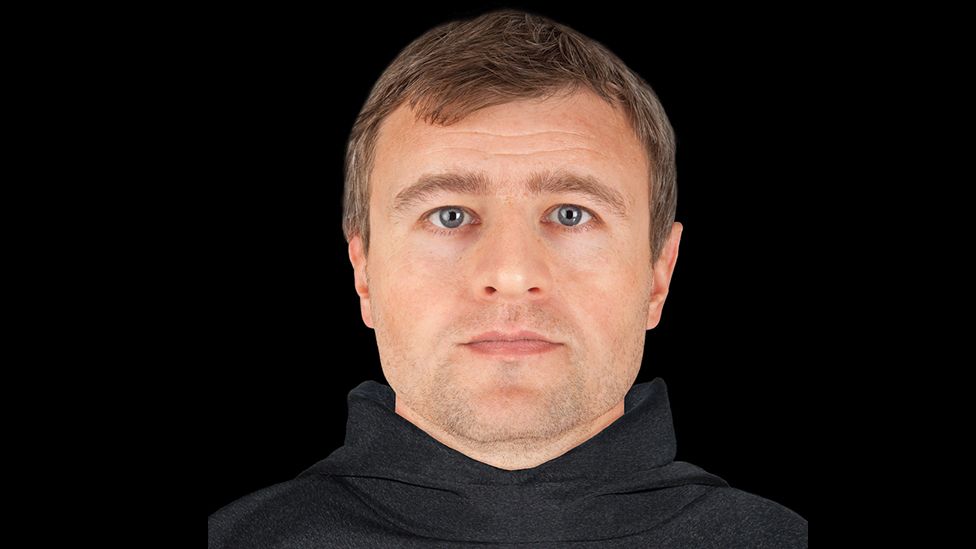Lincoln Cathedral: Facial reconstruction of medieval priest unveiled
- Published

A facial reconstruction of a medieval priest found buried at Lincoln Cathedral has been unveiled.
The priest's remains were discovered among 50 burials unearthed during renovation works in January.
Archaeologist Natasha Powers said the real-life image was "not an exact likeness" but a "representation" based on his skull and medieval drawings.
Experts analysed the 5ft 7in (169cm) skeleton and estimated he died aged between 35 and 45 years old.
Ms Powers said the priest's facial features were based on a model of his skull but his colouration - including that of his eyes and skin - as well as his hairstyle, the size of his lips, and facial hair were "guess work".
She said she was "quite surprised, shocked even," to see the "real-life" image of the priest.
"I didn't kind of believe it to start with and then I went and looked at the skull and I could see it.
"It's because it's so realistic, you think it can't possibly be right but it's entirely based on what his head shape and face shape actually was".
"It gives you that immediate feeling of connection."
It is not known how the priest died as there was "little sign he suffered from any disease or injury during his life", except for a small bump.
Archaeologists believe he had lived "a relatively risk-free lifestyle".
His remains, buried with a pewter chalice and paten, were described as a significant "rare find" when they were discovered.
Similar examples of the chalice and paten - a gold or silver plate - have been dated back as far as the 12th Century.
Follow BBC East Yorkshire and Lincolnshire on Facebook on Twitter, and Instagram. Send your story ideas to yorkslincs.news@bbc.co.uk.
- Published24 January 2020
- Published15 September 2019
- Published7 March 2019
- Published11 November 2017
- Published13 February 2017